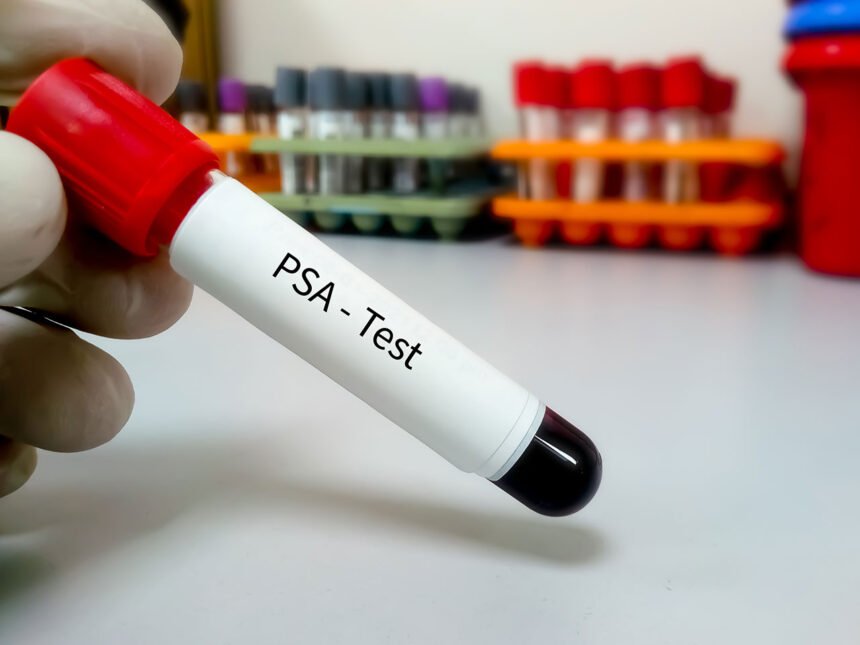PSA blood test is used to detect the level of PSA, which is a protein produced by the prostate. A higher level of PSA indicates the existence of prostate cancer. There are several reasons to have higher PSA levels.
PSA blood test is commonly used for prostate cancer screening. This test can also be used for men who have been detected with prostate cancer to know the recurrence after primary treatment or whether the person is responding to the cancer therapy or not.
Higher PSA level is not only due to the prostate cancer, but also there are several conditions that can cause the rise in PSA, such as prostatitis i.e. prostate inflammation, benign prostatic hyperplasia or BPH i.e. enlarged prostate or urinary infection. Also, there is not any proven research that indicates that BPH or prostatitis can cause prostate cancer; however a person can have one or both of these conditions and to cause prostate cancer.

PSA level in the blood is measured in the nanograms of PSA per milliliter of blood (ng/ml). PSA level can range from 1-100 ng/ml. below chart indicates PSA levels for certain age groups:
|
Age Group |
PSA Level is raised |
Condition |
|
50-59 years |
When it is greater than or equal to 3ng/ml | An indication of any prostate condition |
|
60-69 years |
When it is greater than or equal to 4ng/ml | An indication of any prostate condition |
|
70 or above |
When it is greater than or equal to5ng/ml | An indication of any prostate condition |
Conditions to have PSA blood test:
- A person should not have a urinary infection.
- Avoid excessive workout in the last 48 hours.
- A person should not have a biopsy of the prostate for the last 6 weeks.
- A person should not have a digital rectal checkup in the last week.
- A person is not ejaculated in the last 48 hours.
The existence of any of these conditions can cause incorrect test results.
How to interpret PSA blood test results?
Normal PSA levels: Normal level indicates that you don’t have prostate cancer. If you detect any abnormality with the prostate, you should undergo another test in the future.
A little-raised PSA levels: If you have the PSA level slightly greater than the normal level, it indicates that you possibly don’t have cancer. However, you may need to undergo further tests.
Elevated PSA levels: Higher levels of PSA indicate the existence of cancer. In case your PSA levels are higher, then you need to consult a specialist to determine whether you have prostate cancer.









